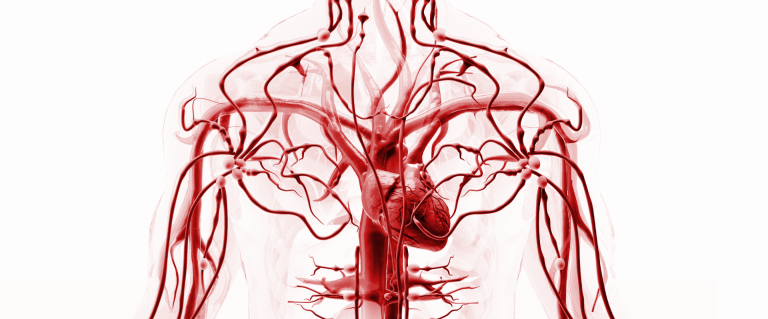Blood Cancer
Blood is the body fluid referred to as the essential force of life due to its role in the transportation of nutrients, oxygen, and waste materials. It is also vital in fighting infections and maintaining body temperature. Blood cancer is a condition that endangers the blood cells.
Regarding the number of cancer cases, India ranks third in the world with over one lakh cases of blood cancer per year. It ranks among the nation’s major causes of death. With proper awareness and treatment, people can survive this disease.
What is blood cancer?
Cancer is an umbrella term used to describe a condition where the body’s cells grow uncontrollably and spread to other parts. It affects the functioning of the normal cell. Blood cancer refers to the type of cancer that affects the human body’s blood-forming tissue or the immune system. Abnormal cells affect the normal functioning of the blood cells, like fighting infection, transportation of oxygen and nutrients, and formation of new blood cells. Blood cancer accounts for 6% of all cancer cases reported from around the world.
Where does blood cancer start?
It is also known as hematologic cancer because it begins in the bone marrow, which produces bone marrow stem cells and other substances that aid blood production.
These stem cells mature and differentiate into three types;
-
RBC or Red Blood Cells- It carries oxygen to other tissues and organs of the human body. Then, RBCs bring carbon dioxide from tissues back to the lungs so that the person can exhale it.
-
WBC or White Blood Cells- It supports the immune system in fighting infections.
-
Platelets- It helps in blood clots when the person is injured to prevent bleeding.
Blood cancer is a condition where the abnormal cells in the bone marrow grow uncontrollably. Then it spirals out of control, interfering with the normal function of other blood cells.
Also read: A comprehensive guide to breast cancer

What are the notable signs and symptoms of blood cancer?
The symptoms of blood cancer vary depending on factors such as how quickly they grow, how far they spread, and the type of cells they affect. But there are common signs that people need to pay heed to;
- Chest pain
- Abnormal cough
- Night sweats
- Fatigue
- Fever or chills
- Breathlessness
- Skin itchiness or rashes
- Nausea and vomiting
- Loss of appetite and weight
- Headaches
- Frequent infections
Showing signs of blood cancer? Click here to book a blood test.
What are the different types of blood cancer?
Symptoms of blood cancer depend on the type of blood cancer, and they are divided into three types; Leukaemia, Lymphoma, and Myeloma.
-
Leukaemia: involves the bone marrow and the lymphatic system. Bone marrow produces white blood cells (WBC) to fight infection in the human body. Leukaemia is a condition where the human body produces an excessive number of abnormal white blood cells. It stops the normal functioning of other WBCs.
Symptoms of Leukemia
- Fever or chills
- Fatigue
- Frequent infections
- Abnormal weight loss
- Swollen lymph nodes
- Enlarged liver or spleen
- Abnormal bleeding
- Recurrent nosebleeds
- Petechiae
- Excessive night sweats
- Bone pain
Based on which WBC is affected, Leukemia is divided into four;
1. Acute Lymphocytic Leukemia (ALL)
- Produces more abnormal lymphocytes
- Children between 3-5 are likely to get
- Adults above 75 are likely to get
2. Acute Myeloid Leukemia (AML)
- Starts in Myeloid cells
- Lowers healthy RBCs, WBCs, and platelets
- Fast growing Leukemia
- Adults above 65 years are likely to get
- More common in men
3. Chronic Lymphocytic Leukemia (CLL)
- Most common Leukemia in adults
- Produces lymphocytes but slower compared to ALL
- Adults above 70 are likely to get
4. Chronic Myeloid Leukemia (CML)
- Starts in Myeloid cells
- More common in men
- Seen more in adults
-
Lymphoma:It is the type of cancer that affects the lymphatic system, especially the lymph nodes. It affects the white blood cells named the lymphocytes, which are found in lymph nodes, spleen, thymus, bone marrow, and other parts.
T-cells or T lymphocytes: It controls the body’s immune system response and destroys infected cells and tumour cells.
B-cells or B lymphocytes: B cells produce proteins called antibodies which target and kill invading microorganisms.
Symptoms of Lymphoma
- Enlarged lymph nodes in the neck, armpit, stomach, groin, and upper chest.
- Chills
- Cough
- Fatigue
- Enlarged spleen
- Fever
- Night sweats
- Rash
- Breathlessness
- Skin itching
- Stomach pain
- Loss of appetite
There are two types of cancer that affect the lymphatic system; Non-Hodgkin and Hodgkin.
1. Non-Hodgkin’s lymphoma
Non-Hodgkin’s lymphoma accounts for 4% of all cancers, according to a study by the American Cancer Society (ACS). Men are more likely to develop this type of cancer than women.
It is further divided into various types;
- Burkitt’s lymphoma: It is a rare and aggressive type of lymphoma. It is commonly found in people with compromised immune systems.
- Follicular lymphoma: It is a slowly growing lymphoma which starts in the white blood cells (WBC). It is more common in elderly people over 60 years of age.
- Mantle cell lymphoma: It is a rare and aggressive form of lymphoma, which involves the gastrointestinal (GI) tract or bone marrow.
- Small lymphocytic lymphoma: It is a slow-growing lymphoma which is mostly found in the lymph nodes.
- Waldenstrom macroglobulinemia (lymphoplasmacytic lymphoma): It is a rare type of blood cancer that sees an abnormal production of antibodies.
2. Hodgkin’s lymphoma
Hodgkin’s lymphoma, also known as Hodgkin’s disease, originates in the lymphocytes. It develops into B lymphocytes, which produce antibodies that latch on to foreign invaders. These abnormal lymphocytes crowd out healthy WBCs.
Hodgkin’s disease is divided into various types;
- Lymphocyte-depleted Hodgkin’s disease: It is an aggressive form of lymphoma that is so rare that it appears only in 1% of all lymphoma cases. The doctor diagnoses an abundance of RS cells.
- Mixed cellularity Hodgkin’s lymphoma: It is a type of blood cancer that sees mixed cellularity with both lymphocytes and RS cells.
- Nodular lymphocyte-predominant Hodgkin’s disease: NLPHD is a type of lymphoma that is characterized by an absence of RS cells.
- Nodular sclerosis Hodgkin’s lymphoma: It is a common type of lymphoma that occurs in lymph nodes that contain scar tissue or sclerosis.
-
Myeloma:It is the type of cancer that is found in the plasma cells. Plasma cells are an important component of the body's immune system and are mostly found in the bone marrow. Lymphocytes, which are a type of WBC (white blood cell), include both B and T lymphocytes. As a response to an infection, B lymphocytes mature and change into plasma cells. These plasma cells make antibodies to immunoglobulins that attack and destroy the foreign invading cells.
The condition where the plasma cells become cancerous and grow out of control is called multiple myeloma. They release abnormal proteins called monoclonal immunoglobulin, monoclonal protein (M-protein), M-spike, or paraprotein.
People should be aware that there are other plasma cell disorders that release abnormal proteins like the following:
- Monoclonal gammopathy of uncertain significance (MGUS)
- Smouldering multiple myeloma (SMM)
- Solitary plasmacytoma
- Light chain amyloidosis
Symptoms of multiple myeloma
- Anaemia (low blood count)
- Fatigue or weakness
- Thrombocytopenia (low platelet count)
- Leukopenia (shortage of normal WBC)
- Weak bones
- High calcium levels
- Kidney damage/ kidney failure
- Susceptibility to infection
What are the different treatment options for blood cancer?
Treatment options for blood cancer depend on various factors like the type of cancer, stage of cancer, patient's age, and if they have other health issues. Some of the common treatment options for blood cancer are as follows;
-
Stem cell transplantation: It is the process of infusing stem cells that produce healthy blood into the patient.
-
Chemotherapy:It is the process where powerful drugs are used to destroy the abnormal cancer cells that are growing and spreading in the human body. These drugs are either used alone or in combination, depending on the advice from the medical expert.
-
Radiation therapy:It uses radiation to destroy cancer cells in the human body. Radiation therapy is an effective treatment to relieve a person from pain caused by bone damage caused by cancer cells growing in the bone marrow.
-
Immunotherapy:It is a process of using the body's immune system to identify and kill abnormal cancer cells. Immunotherapy is effective against lymphomas, acute myeloid (AML), chronic myeloid (CML), acute lymphocytic (ALL), and chronic lymphocytic (CLL).
What are the side effects of blood cancer treatment?
Blood cancer treatment methods have their own respective side effects that can be either temporary or permanent.
Common side effects of stem cell transplantation are;
- Mouth and throat pain
- Nausea and vomiting
- Infection
- Bleeding and transfusions
- Interstitial pneumonitis and other lung problems
- Graft-versus-host disease
- Hepatic veno-occlusive disease (VOD)
- Graft failure.
The side effects of chemotherapy while treating blood cancer are as follows;
- Renal failure
- Disturbances in the heart rhythm can cause heart failure
- Higher risk of blood clots
- Weak heart muscles
- Involuntary expansions or contractions of the artery
- Inflammation of the sac around the heart
- Fatigue
- Depression
- Chemo brain
- Loss of libido
- Low sex drive
- Infertility
- Menopause
- Nausea and vomiting
- Bowel control problems
- Dry mouth
- Mouth sores
- Tooth decay
- Thick saliva
- Anaemia
- Hair loss
- Red, brown, or purple bruises
Some of the common side effects of radiation therapy are as follows;
- Hair loss
- Memory or concentration problems
- Nausea and vomiting
- Skin changes
- Headache
- Blurry vision
Common side effects of immunotherapy are as follows;
- Pain
- Swelling
- Soreness
- Redness
- Itchiness
- Rash
- Flu-like symptoms
- Fatigue
- Nausea or vomiting
- Muscle or joint aches
- Headache
- Trouble breathing
- Low or high blood pressure
- Swelling and weight gain from retaining fluid
- Heart palpitations
- Sinus congestion
- Diarrhoea
- Infection
- Organ inflammation
Don’t avoid cancer treatment!
CancerMitr provides a holistic treatment plan to tackle all cancer-related challenges, including side effects management. Check out our website for more details.
What are the supportive therapies for blood cancer patients?
Supportive therapy is an essential part of blood cancer treatment. As mentioned in the above section, blood cancer treatment comes with a lot of side effects. Supportive therapy is meant as a source of relief for cancer patients. Patients need proper sleep, motility, pain relief and the elimination of toxins from their bodies.
- Medications
Blood cancer patients are prone to fever-like symptoms during treatment. They also suffer from mouth sores, blisters, breathing problems, and fatigue. People suffer from infections in the pharynx, oesophagus and sinuses, anus and rectum, lungs, and skin. To overcome these challenges, patients require antibiotics, antivirals and antifungals.
- Replacement therapy
In case of low blood counts, medical experts recommend replacement therapy where the body is given a blood transfusion to compensate for the low blood count. Replacement therapy as a process involves;
- Packed red blood cells (RBC)
- Platelets
- Fresh frozen plasma
- Cryoprecipitate
Granulocyte colony-stimulating factors (G-CSFs) such as filgrastim (Neupogen) and pegfilgrastim (Neulasta) are administered to patients to promote the improved production of white blood cells (WBC). Patients are required to undergo Leukapheresis, a procedure where a specific machine is used to extract significant quantities of WBCs, to treat unusually high WBC levels in the blood.
- Mental health support
Cancer diagnosis is a devastating situation that puts people in a state of stress, depression and numbness. Mental health counsellors provide apt therapy for cancer patients and their families.
- Diet and nutrition
Blood cancer treatment involves severe side effects like constipation, nausea and vomiting, hair loss, mouth sores, etc. People should consume food items that ease the symptoms. Dieticians provide apt diet plans for the patients.
What lifestyle changes are people with blood cancer expected to make?
Blood cancer patients are expected to make certain lifestyle changes to make their bodies strong enough to withstand the side effects of the treatment. The immune system should be strong enough to fight the disease, so people should consume enough vitamins and minerals. Blood cancer patients should make the following lifestyle changes;
- Patients should quit smoking and alcohol consumption.
- Patients should wear facemasks and hand sanitisers when required to avoid infections.
- Patients should avoid the consumption of processed meat, red meat, and packaged food items for health. They are recommended to consume more fruits and vegetables.
- Patients should manage fatigue by doing enough exercises daily.
- Patients should consider taking mental health guidance or counselling. They can go to religious retreats or communities to seek comfort.
What are the important follow-up care steps after blood cancer treatment?
Patients should continue a lifestyle without smoking and drinking to maintain their bodies and physical health. They should strictly stick to a balanced diet, good sleep habits and enough exercise.
Patients are recommended to go through a routine checkup to keep track of their treatment progress and to check for possible recurrence of the disease.
Patients should maintain health records and keep track of aspects like;
- Treatment methods and their frequency
- Medications prescribed to them
- Side Effects
- Blood test report
- Physical test report
- Risk of developing long-term effects
Get the best cancer care in the country. Write to us at hello@cancermitr.com or call us at 96630 71088.

